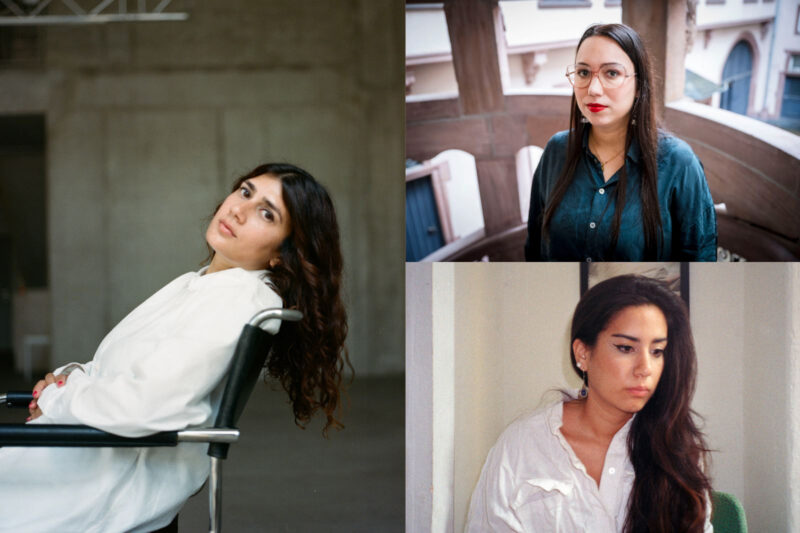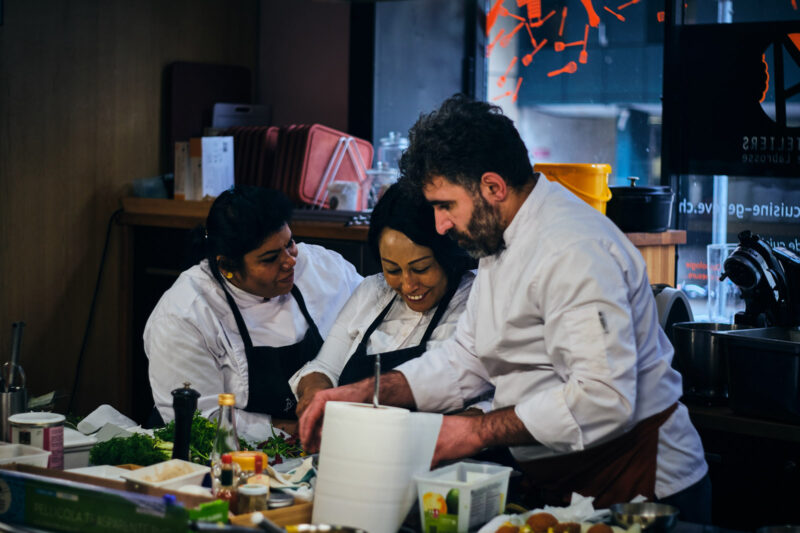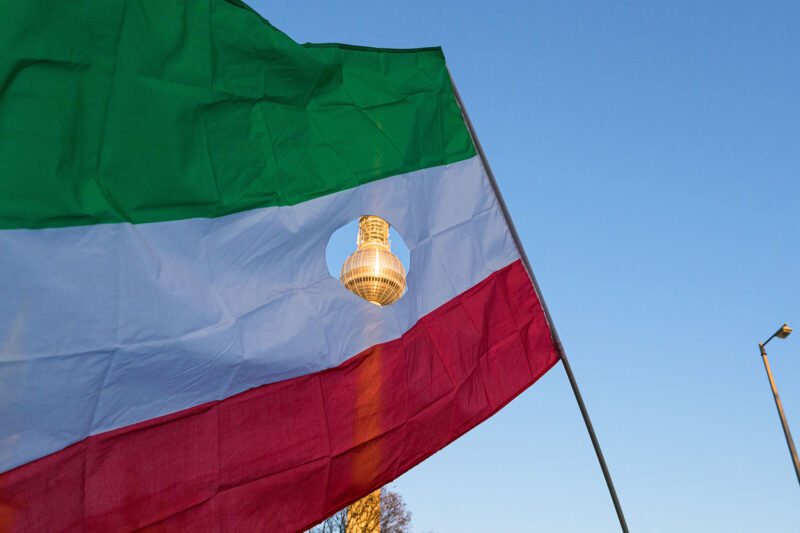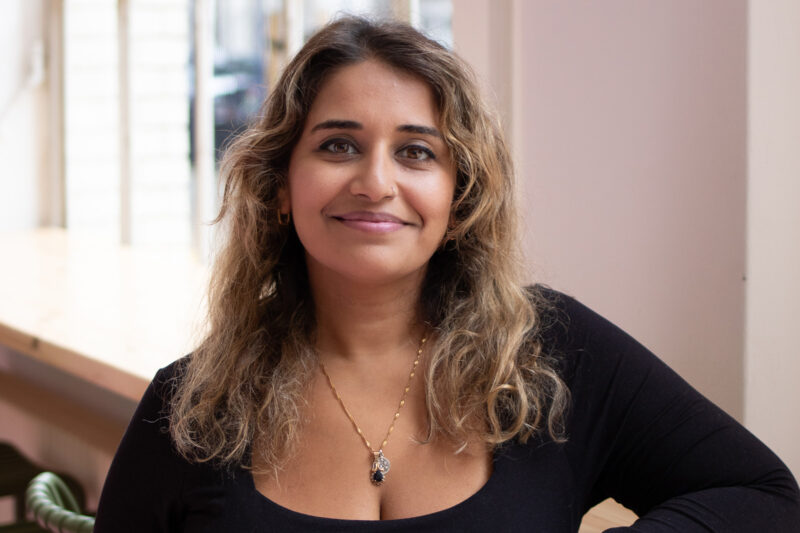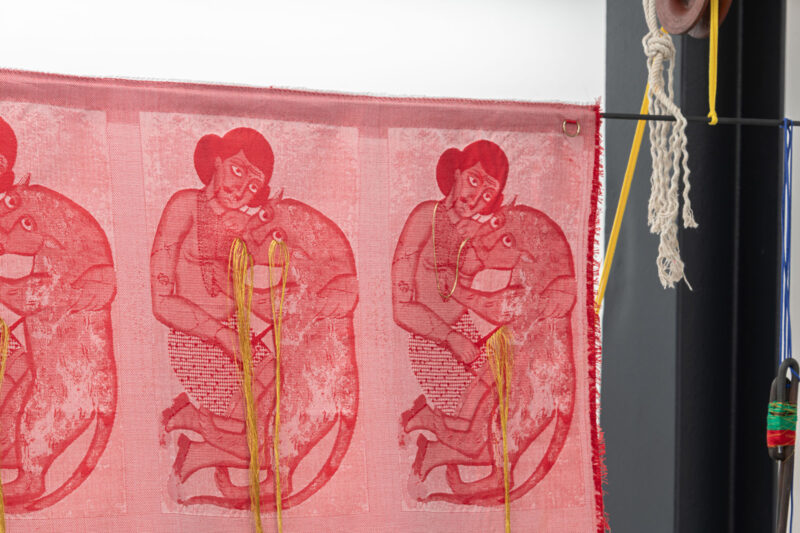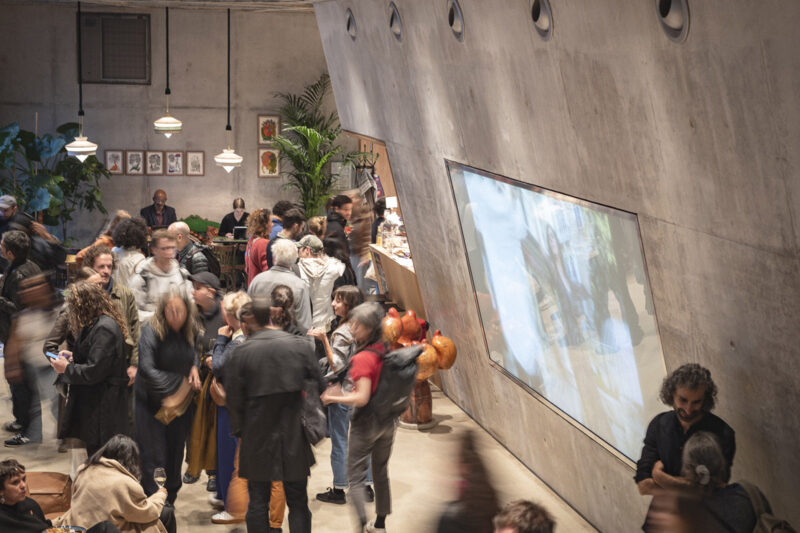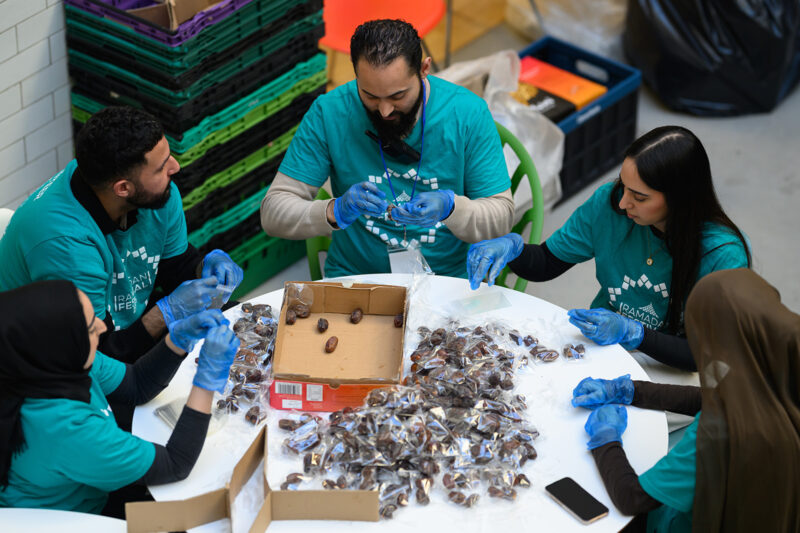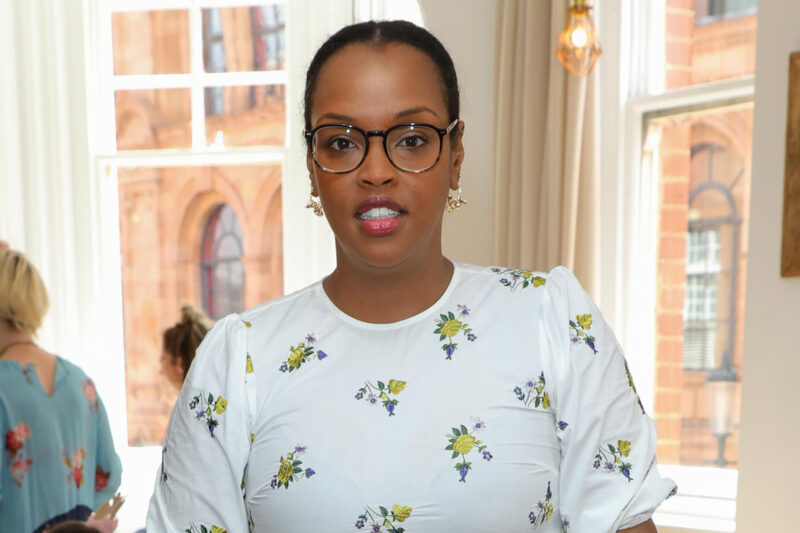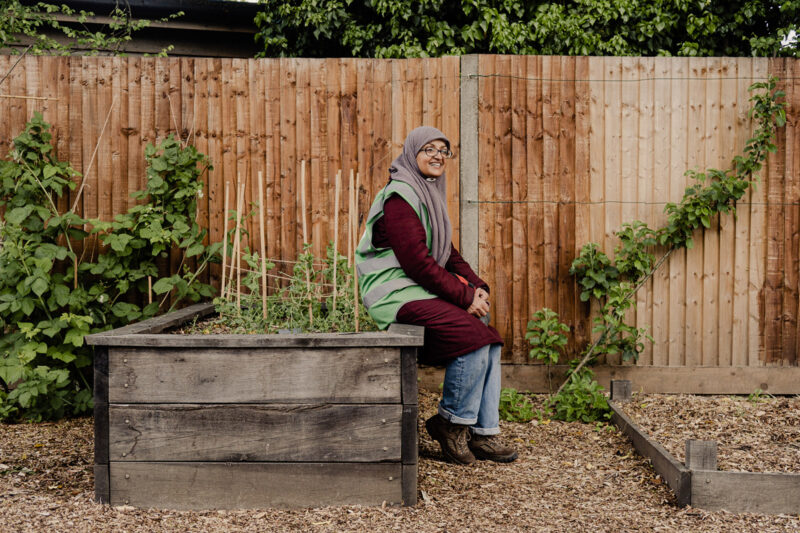Germany’s trans Muslim TikTok star
Talking openly about faith, family and her trans journey has made Berfin ‘kurdischekween’ an online hero for queer Muslims
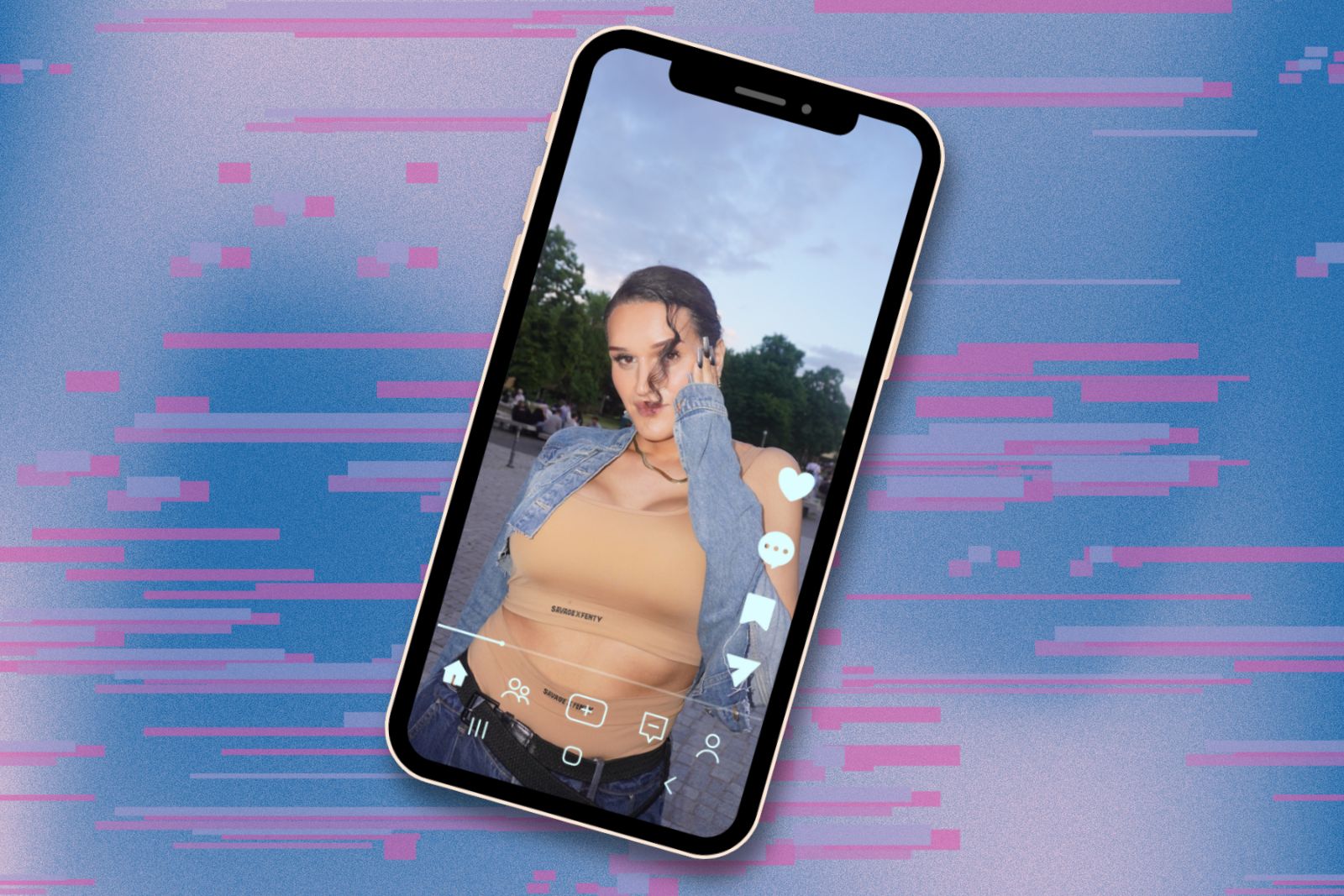
Pinned to Berfin Celebi’s TikTok page is a video of her and a friend in a busy Berlin square, waving a huge Kurdish flag with a difference — either side of the yellow sun are the instantly recognisable rainbow colours of the LGBTQI+ Pride flag. It has racked up more than 1.4 million views, and comments ranging from the outraged “No way, bro” to invitations to bring the flag to cities across the world.
Celebi, a 27-year-old transgender woman and a Muslim, goes by @kurdischekween on TikTok. She uses the platform to start discussions with her 100,000 followers about LGBTQI+ rights and Islam. As well as provocative stunts such as the flag, she creates informative videos on queer theology that discuss different interpretations of the Qur’an. She answers questions about her transition journey and how to deal with homophobic or transphobic family members, often starting her videos with the greeting “Salam Alaikum, sisters!”.
Celebi was born in Bochum, a West German mining town, but her parents are from Turkish Kurdistan. As she grew up with her five siblings, religion played a huge role in her family life. “I really loved the way my parents taught us about Islam,” she said. “It was all about being together, loving your siblings, being kind to other people.” Rituals such as fasting and eating Iftar as a family were sources of joy for her as a child.
However, for a feminine-presenting young boy, religion was also a source of tension. Her parents warned her that she could go to hell if she grew up queer. “I knew I was transgender but I was always trying to pray it away, even from the age of six,” she said.
Aged 20, she visited a Pride parade in the nearby city of Cologne and got chatting to a drag queen. “She was so kind, and so friendly,” Celebi recalled. “I never thought I had the capacity to live as a trans woman, so when I discovered drag I thought maybe this is a way I can express my identity while still hiding from my family.”
The drag queen from Cologne became one of Celebi’s closest friends. Through her, she became part of an LGBTQI+ community, which she now calls her “second family”, and started performing. At her friend’s house, she practised makeup looks and put outfits together — both impossible tasks in her family home. But she couldn’t keep her new queer life a secret forever. A couple of years after she began performing, someone sent her parents a photograph of her in drag. Outraged, they stopped speaking to her.
Around the same time, local journalists noticed Celebi’s performances, intrigued by the idea of a Muslim drag queen. She began giving interviews to podcasts and YouTube channels, including the queer-friendly youth channel Auf Klo. “There wasn’t any hate, and I got lots of nice DMs about it. I was like, this is so great, I will keep talking,” she said. This positivity gave her the confidence to open up about her identity on social media, with posts including drag makeup looks based on the colours of the Kurdish flag — “I never saw any queer Muslim representation in the media, so I wanted to create that.” In 2022, she moved to Berlin, came out as transgender and started chronicling her experience of transitioning.
Today, Celebi describes the process of being out of the closet while still identifying as Muslim as a very rocky road. “People would tell me, ‘You can never be a real Muslim’,” she said. She struggled to find a mosque that felt like a safe space — every imam she met seemed to want her to attend conversion therapy — and there were moments when she wondered if she should leave the faith entirely. “But after reflecting, I thought, I still see the world in an Islamic way,” she said. “When I pray, I can still feel Allah. So I don’t want to give this up just because of what other people think.”
Then, in 2023, Celebi was invited by one of Germany’s more Muslim houses of worship, the Ibn Rushd-Goethe mosque, to perform at a drag event. The mosque, which opened in 2017, allows men and women to pray together and does not require women to wear head coverings. It has been controversial since its first days — within weeks of opening it was issued with a fatwa from Egypt’s Dar al-Ifta al-Masriyyah, a state-run Islamic institution assigned to issue religious edicts, and was criticised by multiple religious organisations.
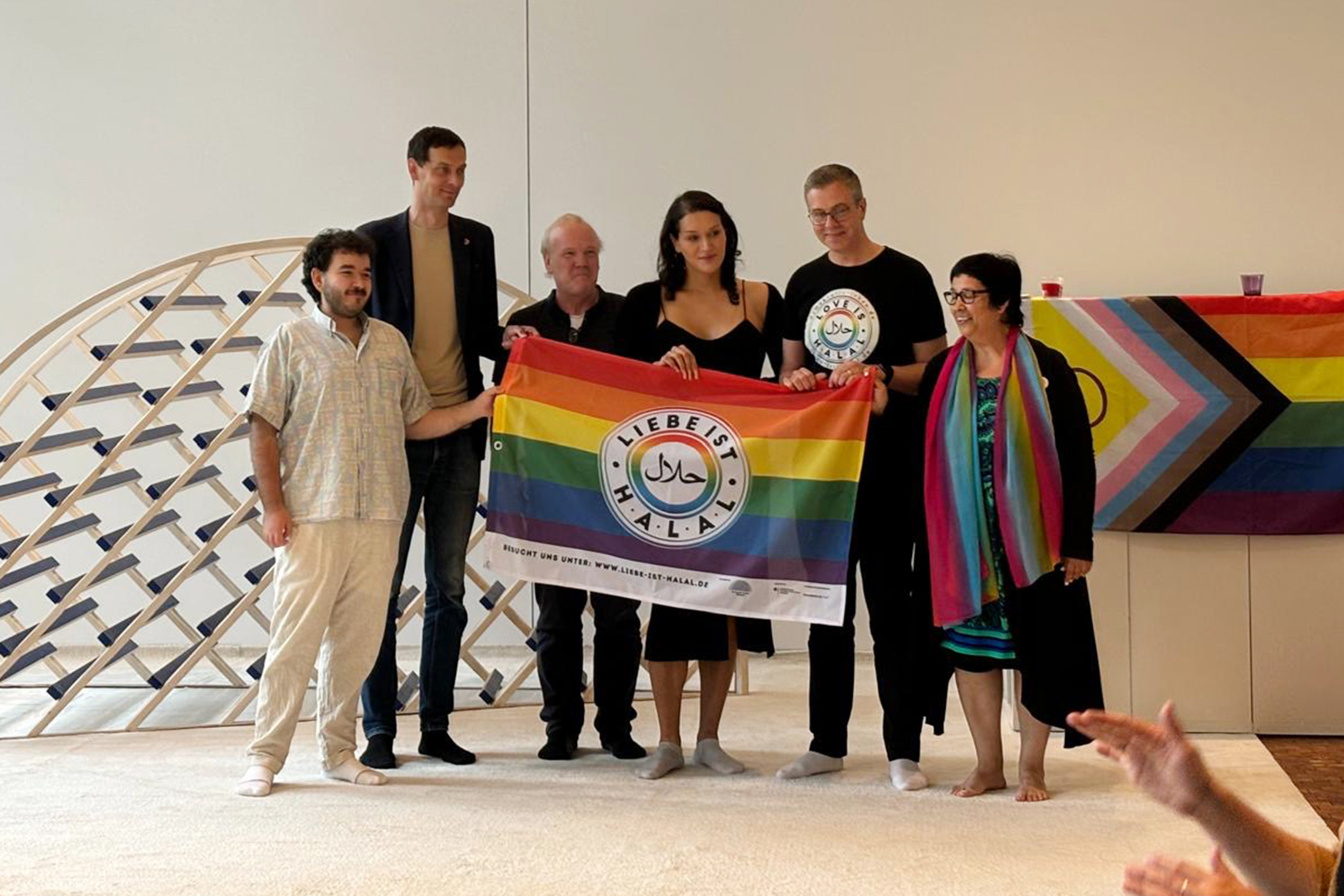
This was the first place of worship in which Celebi felt truly safe and comfortable. The mosque’s liberal theology fit her perception of Islam. “[The mosque] taught me that you can interpret the Qur’an how you want to,” she said. “And there isn’t actually anything in it about being trans. There’s nothing written about that.”
In all three Abrahamic religions, the story of the destruction of the two cities Sodom and Gomorrah as punishment for their wickedness is frequently cited by religious leaders as justification for anti-LGBTQI+ positions. The Ibn Rushd-Goethe Mosque, however, interprets this story as being about punishment for rape rather than homosexuality — a perspective shared by LGBTQI+-inclusive religious leaders around the world.
Celebi now works with the mosque to deliver workshops in schools about Islam and LGBTQI+ rights. “We teach that the Qur’an is a book that spreads love,” she said. “Although it’s also important to say, this is the way that I personally see it, whereas other people have their own points of view.”
As Celebi’s public profile grew, she attracted more negative attention. She recalls being unprepared for how vicious some of the attacks on her would be, particularly once she started speaking with more mainstream outlets, such as national TV channel Stern. “[Then] the hate really blew up.”
“I’ve had people try to follow me and my friends, or try to attack me,” she said. The most terrifying threat came from a group in Iraqi Kurdistan that posted a photograph of her on Facebook along with an instruction that anyone who killed her would receive a financial reward. She has multiple open harassment cases with the police.
However, Celebi decided early on that she would not delete the threats or hateful comments on her posts. “I want people to see it,” she said. “Many people are shocked at the hate I receive as a queer Muslim person.” Some of the threats have been targeted at the mosque. In October, after a planned terror attack was foiled by police, it closed its main premises and for the time being is running its programme through workshops.
Celebi continues to post content she knows some people will find provocative in the hope that she will start conversations. The negative messages she receives are balanced by the positive. “I have so many DMs from people who say I helped them come out, or that I have helped them feel understood.”
Celebi believes that queer Muslim representation is growing stronger. “In Berlin I see more people speaking openly about their [Muslim] faith while identifying as queer,” she said, although many are reluctant to open up about their identity online out of concern for their families’ reactions. Celebi has reconciled with her own and she believes her public profile helped as her family could see that her identity was serious rather than just “a phase”. She made a series of moving TikTok posts about returning to her home town as a trans woman.
“My mother got back in touch eventually and told me she missed me,” she said. “I don’t blame my mother [for her views]. She was raised in a tiny village in Turkey. She didn’t have much exposure to these ideas.” Overall, “things keep getting better, and it’s very beautiful,” she said.
 Newsletter
Newsletter


